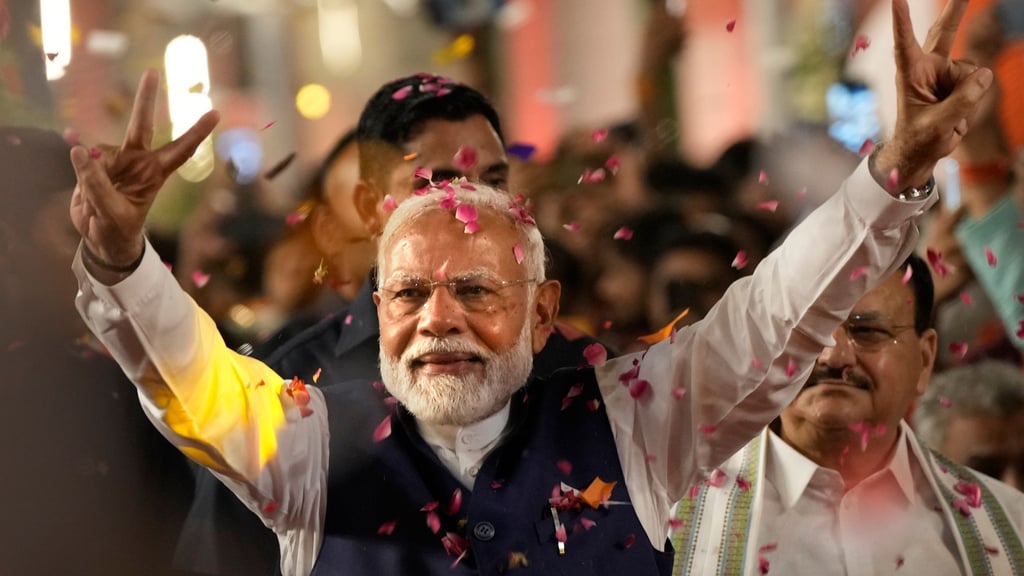New Delhi – After his party’s far worse performance in India’s parliamentary elections, Prime Minister Narendra Modi may be looking to erstwhile allies to form a government. After discussions at Modi’s residence in New Delhi on Wednesday, Hindu nationalists at Platform X announced that previous coalition partners had approved the 73-year-old to lead the governing coalition. A representative of the regional Janata Dal Party confirmed this and told Business Today that a government under Modi would be formed soon. Despite the initial lack of clear announcements from other coalition partners, the polarising and increasingly autocratic Modi is expected to begin a third consecutive term soon – as his country’s second prime minister after Jawaharlal Nehru.
The Hindu nationalist BJP lost its absolute majority in the lower house for the first time in a decade, but remains the strongest force. It won 240 of the total 543 seats in parliament, as announced by the election commission. With its previous coalition partners – small regional parties – the BJP would have at least 292 seats to form a government, as local media estimates show.
Commentator: Society wants a course adjustment
But political commentators point out that the public has sent a clear message to New Delhi through their vote: they want a course correction. “The BJP’s seemingly invincible politics of religious polarization have been kept in check,” writes Sudheendra Kulkarni. “Indian democracy can breathe a sigh of relief. The basic values of the constitution, which have been under severe pressure for the past decade, are now well protected.”
During the election campaign, the BJP relied heavily on the personality cult around Modi as a powerful and godlike leader. It propagated a Hindu nationalist agenda that India should be a country only for the Hindu majority, who make up 80 percent of the population. As a result, the roughly 200 million Muslims and other religious minorities are increasingly treated as second-class citizens. With 1.4 billion people, India is the world's most populous country.
Modi also concentrated power in his office and the opposition accused him of using state institutions to silence them. Several of his politicians were arrested on corruption charges during the election campaign. At the same time, most media outlets took the government's position. Criticism also soared from the head of government.
“People finally want to work”
Under Modi, the subcontinent has also become the world’s fifth-largest economy. But growth has been uneven and only a small percentage have benefited. High unemployment and inflation are recurring issues raised by the opposition. According to official figures, more than half the population – about 800 million – survive on social assistance. They will do so now, the Hindustan Times wrote. They finally want to work.
During the election campaign, Modi set a high bar for success: he wanted to significantly expand his previous coalition’s majority – to more than 400 seats. But he lost significant seats. But the opposition made surprising gains. According to local media, their alliance has 234 seats and also met for consultations on Wednesday.
At the same time, Modi has received congratulations from various parts of the world: from China, with which India has very tense relations due to border conflicts, it has been said that relations between the countries are in the interests of both sides and contribute to border conflicts. towards peace and development in the region. Italian President Giorgia Meloni emphasized that he wanted to work more closely with him. Western countries are increasingly seeking closer ties with India in the face of an increasingly aggressive China.

“Subtly charming web junkie. Unapologetic bacon lover. Introvert. Typical foodaholic. Twitter specialist. Professional travel fanatic.”







